A dry scalp results from moisture loss in the skin cells that comprise the scalp. For some, remedying this can be relatively simple; others aren't as lucky. If you or someone you know suffers from a dry scalp, here is everything you need to know about what causes it and what you can do.
The Main Causes of Dry Scalp

We’ve listed a few of the main causes of dry scalp to help you identify whether you have this condition and what may be causing it.
Scalp Psoriasis
Psoriasis is a chronic autoimmune condition that causes skin cells to multiply faster than expected, leading to flaking skin patches called plaques. Psoriasis has genetic aspects but can also be triggered by lifestyle factors.
Eczema
Eczema is a skin condition causing the skin to become itchy and inflamed.
Actinic Keratosis
Actinic keratosis is precancerous sun damage caused by unprotected sun exposure. Actinic keratosis is common among people who have experienced hair loss and people over 50 years old.
Tinea Capitis
Also known as scalp ringworm, tinea capitis is a fungal infection that spreads quickly on your scalp and can be contracted via direct contact with people and animals.
Weather
Cold climates and areas of low humidity can dry out the skin on your scalp.
Certain Hair Care Products
Hair products such as harsh shampoos can cause contact dermatitis. Contact dermatitis is a reaction to an agent that causes skin irritation.
Washing Your Hair Every Day
Washing your hair frequently can rob it of the natural oils keeping your scalp moist.
What Are the Symptoms of Dry Scalp?
Flaky skin
Lack of moisture can result in a flaky scalp. The resulting flakes are generally small and white.
Tight-feeling scalp
A dry scalp will typically feel unusually tight.
Itchy Scalp
An itchy scalp is an early sign of a dry scalp. An occasional itch is natural. However, if your skin is frequently itching, it could be due to a dry scalp.
A dry scalp can be confused for dandruff and vice versa. If you're not confident in self-diagnosing, the best solution would be to consult a dermatologist (skin doctor) who can accurately identify your skin condition or lack thereof.
Can a Dry Scalp Cause Hair Loss?
Your scalp being dry can lead to hair loss, but this may primarily be down to the severity of your dry scalp. A dry scalp is not an ideal environment for hair follicles to grow and thrive, but what mainly causes hair loss with a dry scalp is scratching and picking at the scalp.
If you vigorously scratch your dry scalp, there is a chance you could damage the hair follicles, which can then lead to hair loss. If you're suffering from a dry scalp, do your best to avoid aggressively scratching your scalp.
What Can Be Done to Avoid Dry Scalp?
Like many other skin conditions, implementing a few lifestyle changes is the primary way to avoid suffering from a dry scalp. Here are some things you could try.
Switch Your Shampoo
Sometimes preventing dry scalp is simply a matter of switching to a different type of shampoo. Divi's Shampoo contains ingredients such as glycerin to help moisturize a dry scalp and tea tree oil to reduce inflammation.
Change Your Wash Schedule
Changing how often you wash your hair can significantly improve a dry scalp. People often fall victim to over-washing their hair, resulting in their scalp drying out. If this is the case for you, limit how often you wash your hair to a schedule that doesn't harm your scalp's production or retention of natural oils.
Reduce or Manage Stress
Healthcare studies show that stress can be adverse to your physical well-being. While it may not directly result in your scalp drying out, stress can strain your ability to maintain a balanced diet or may lead to scalp scratching as a coping technique. A poor diet, in turn, can lead to your scalp drying out.
Increase Your Water Intake
Dehydration will substantially increase the likelihood of your scalp drying out. Do your best to ensure your body has a sufficient amount of water every day.
Stop Smoking
Smoking can dehydrate you and deprive your skin of moisture. Quitting smoking is a good idea if you want to combat your dry scalp.
Use a Humidifier
Because the weather plays a significant role in scalp moisture, using a humidifier in a typically dry environment can add some much-needed moisture to your home. Consider avoiding cold climates.
Dandruff vs. Dry Scalp: What's the Difference?
The easiest way to tell the difference between dandruff and a dry scalp is by looking at the flakes. Dandruff flakes tend to be bigger and more oily in appearance, whereas a dry scalp produces smaller and more dry flakes. A dry scalp may also mean dry skin on other parts of the body, but dandruff generally doesn't.
Additionally, seborrheic dermatitis is the primary cause of dandruff. In short, seborrheic dermatitis is a skin condition with various causes: stress, naturally occurring fungi, and general health.
Dry Scalp and Diet
Believe it or not, your diet can impact your scalp's moisture.
Look for foods with the following to help prevent a dry scalp:
- Coconut oil
- Omega-3 fatty acids
- Vitamin A
- Iron
Avoid the following foods if you wish to prevent your scalp from drying out further:
- High-mercury fish
- High-sugar foods
- Low-protein foods
- Alcohol
What Treatment Can You Use for Dry Scalp?
There are various dry scalp treatment methods, so it's a matter of finding what works best for you. While the treatment can depend on the cause, Divi's products contain ingredients that can help with many common scalp conditions.
If you have a severe case of dry scalp caused by underlying conditions, a doctor may suggest treatment based on the condition. Here is an overview of the treatment options based on each condition.
Scalp Psoriasis
- Medicated shampoo
- Scale softeners
- Topical and oral medications
- Phototherapy, which entails exposure to UV light
Eczema
- Cortisone cream and ointments
- Phototherapy
- Humidifiers
- Skin products with ceramide
Actinic Keratosis
- Surgeries such as minimally invasive cryotherapy
- Photodynamic therapy
Tinea Capitis
- Medicated shampoo
- Antifungal cream
- Topical medications such as a corticosteroid
When Should You See a Dermatologist for Dry Scalp?
As you've probably gathered by now, dry scalp is a treatable condition. How you treat it will depend on the exact cause and severity, but if you've tried various home remedies and your condition isn't improving, it may be time to see a dermatologist.
Additionally, if you find that your dry scalp is making your general lifestyle measurably uncomfortable or you are experiencing symptoms such as scalp bleeding, cracking or hair loss, then immediately seek help from a medical professional.
Commonly Asked Questions About Dry Scalp
How Often Should I Wash My Dry Scalp?
Because how often you shampoo your hair can be a huge factor in how moisturized or dry your scalp is, it's essential to be mindful of doing so. Finding the balance is tricky, as cleansing your hair too often can dry out your scalp, whereas under-washing your hair could leave you feeling irritated from the build-up of dead skin cells.
If you have a dry scalp, a viable solution would be to wash your hair every third or fourth day.
Should I Stop Using Shampoo if I Have a Dry Scalp?
Regardless of what end of the scalp moisture spectrum you're on, shampooing can play a vital role in your scalp health. Sources typically vary regarding whether you can entirely forgo shampooing, so this could be down to your needs as an individual.
If you feel your scalp loses a substantial amount of moisture every time you shampoo it, consider forgoing shampoo, especially if you've switched to shampooing periodically and not daily. On the other hand, consider switching shampoos, as it may be a matter of finding a brand that best suits your scalp. Divi's dermatologist-approved formula is safe for those with many scalp conditions and pregnant women.
What Vitamins are Suitable for a Dry Scalp?
For those with a chronically dry scalp, Vitamin A tends to be the most beneficial of the vitamins for preventing this condition. Vitamin A is vital for cells in the body that aid in sebum production. Sebum is critical for giving the scalp a sufficient amount of moisture.
Foods such as carrots, pumpkins, yogurt, eggs, spinach and milk are all excellent sources of Vitamin A. However, be cautious of how much Vitamin A you consume daily, as exceeding the recommended daily amount may result in hair loss.
Final Thoughts
Treating a dry scalp condition can be as easy as making a few changes to your daily routine. Minimizing stress, hydrating properly, and eating a healthy, well-balanced diet all contribute to good scalp health, skin health, and overall health. Avoiding hair products with harsh chemicals and strong perfumes will help your scalp retain moisture and flake less. Divi’s Shampoo, Conditioner, and Scalp Serum are all specifically formulated to create an environment that promotes scalp conditions for healthy, strong and vibrant hair, without the use of damaging chemicals or perfumes.






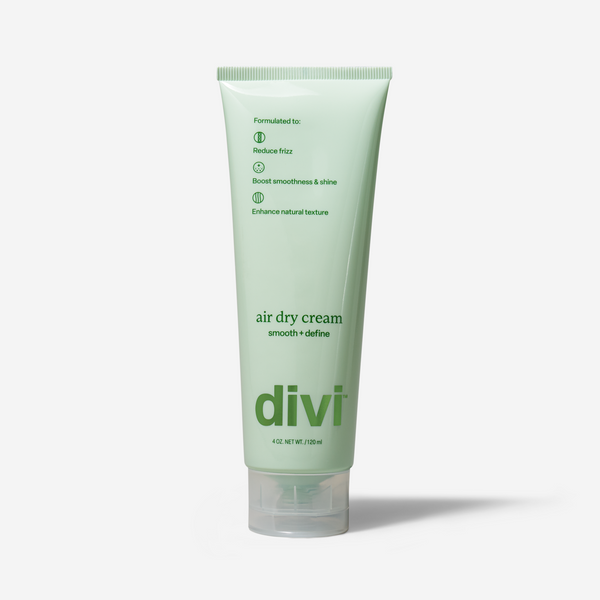
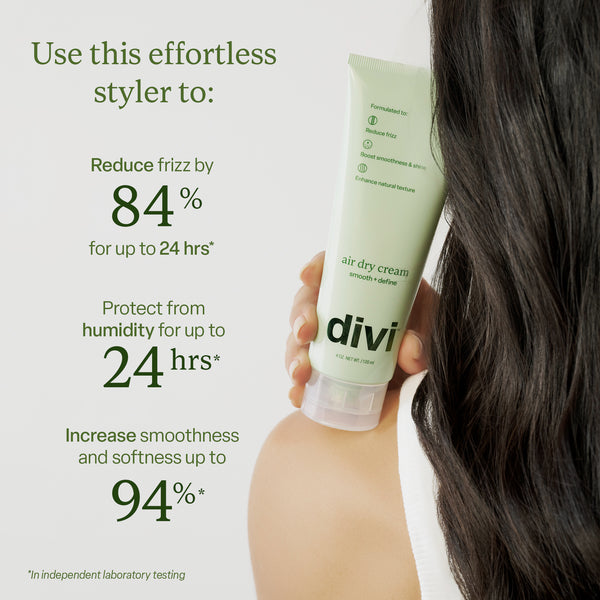

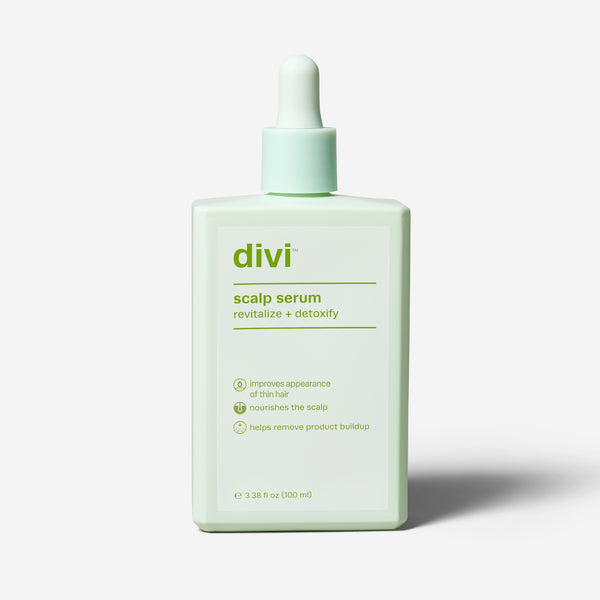

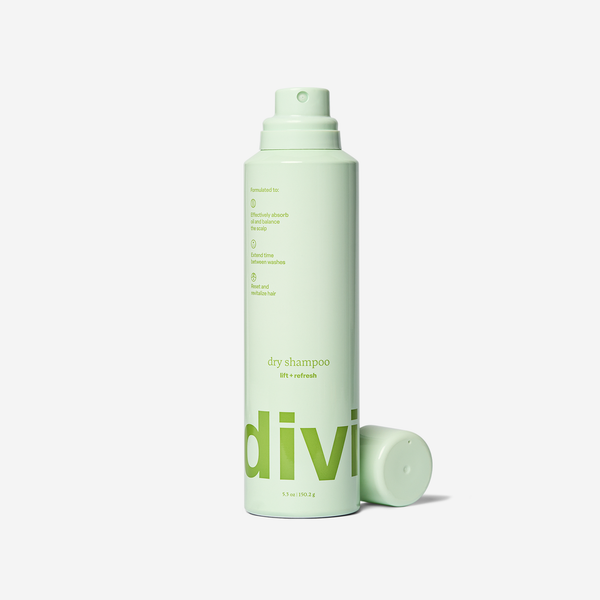

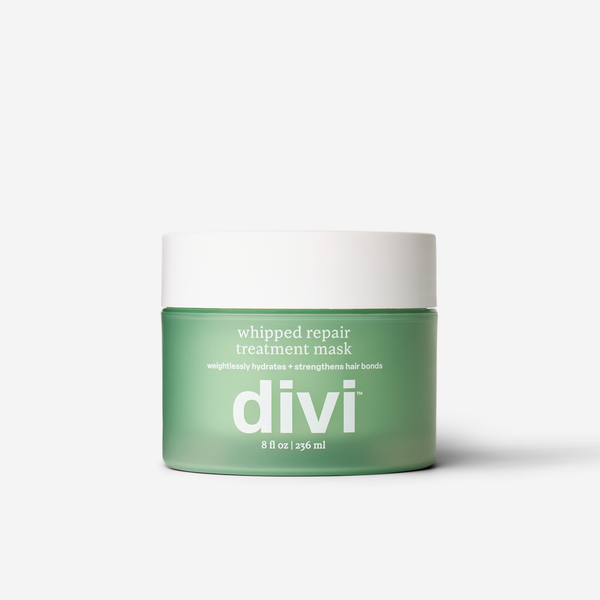

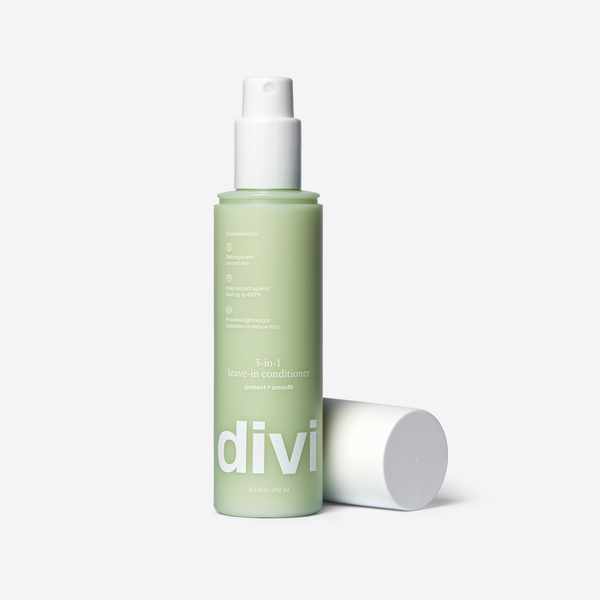

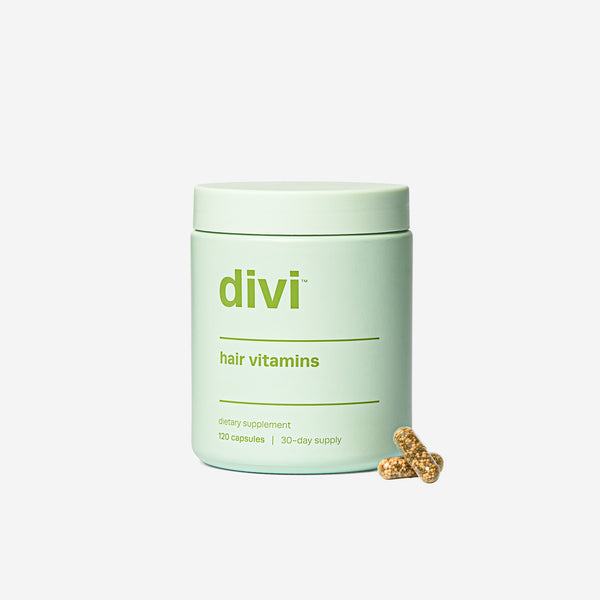
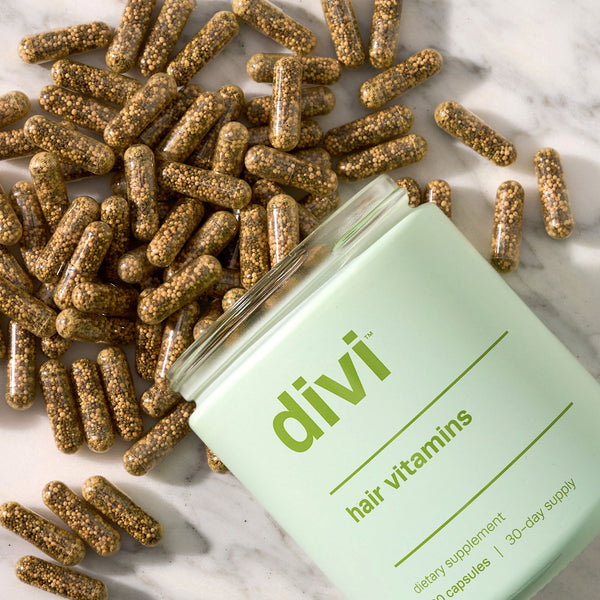
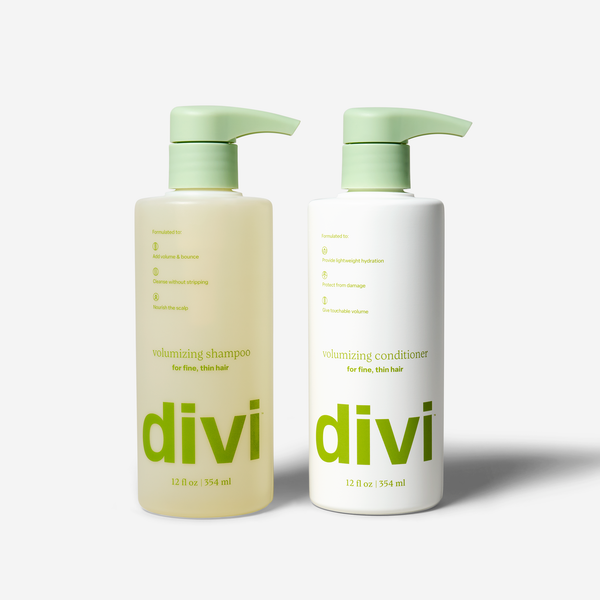





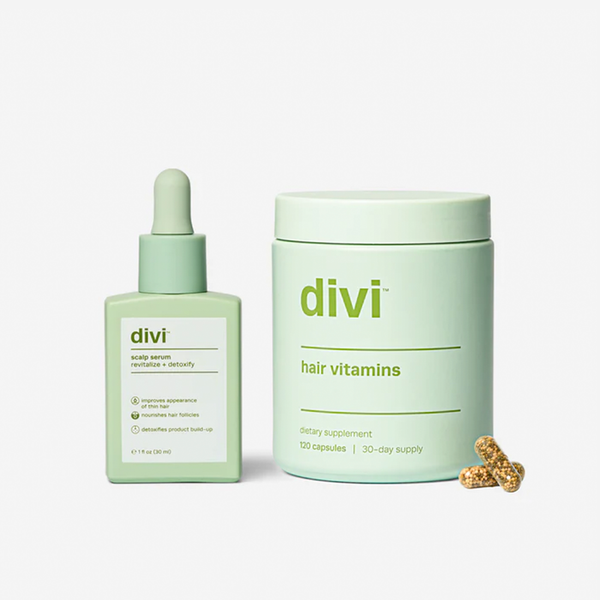
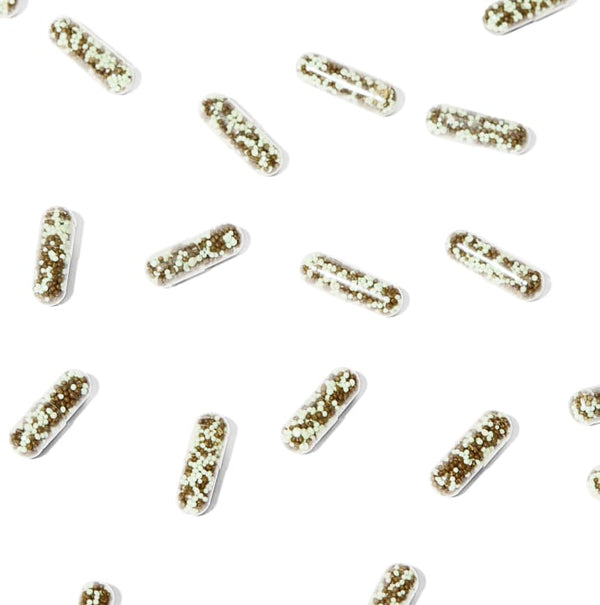
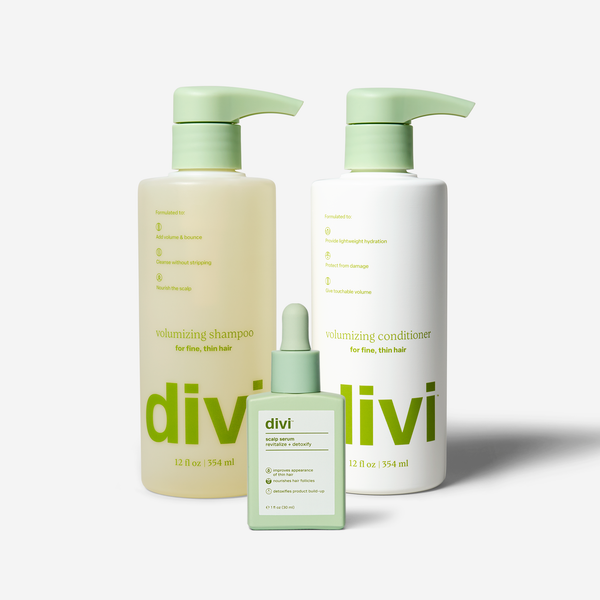
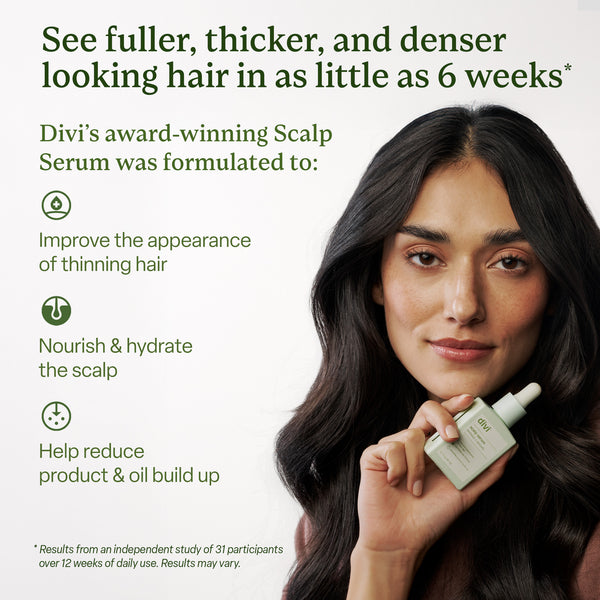


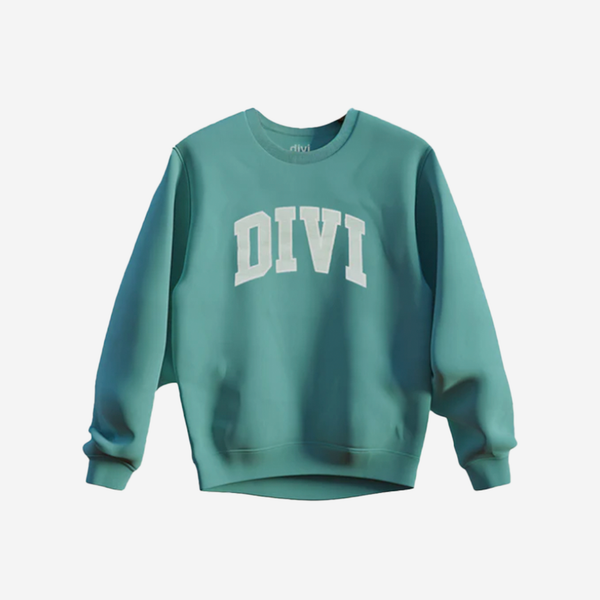
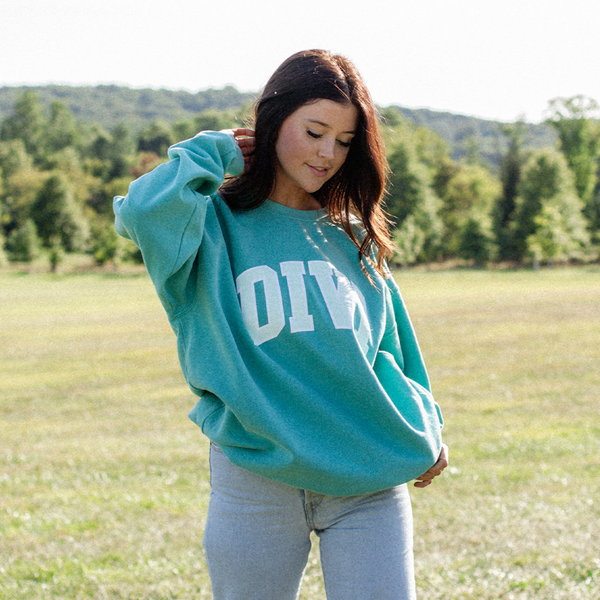







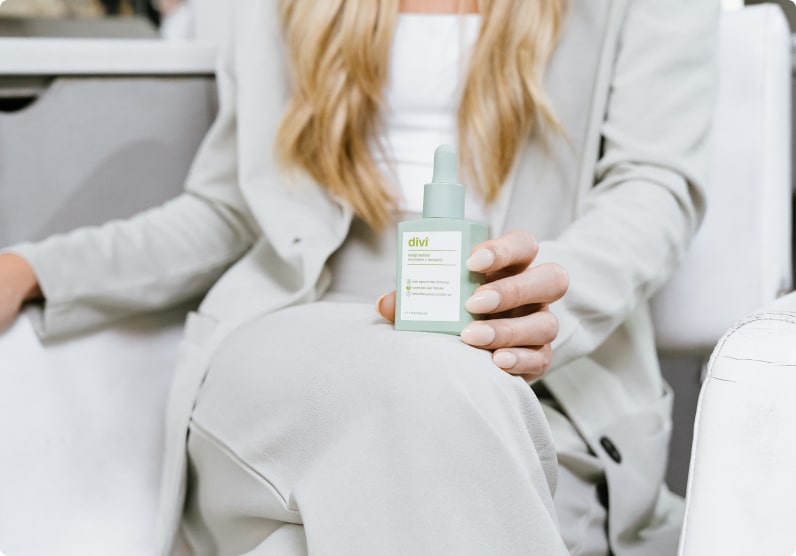






 30ml Scalp Serum
30ml Scalp Serum
 100ml Scalp Serum
100ml Scalp Serum
 Volumizing Shampoo
Volumizing Shampoo
 Hydrating Shampoo
Hydrating Shampoo
 Travel-Sized Volumizing Shampoo
Travel-Sized Volumizing Shampoo
 Travel-Sized Hydrating Shampoo
Travel-Sized Hydrating Shampoo
 Volumizing Conditioner
Volumizing Conditioner
 Hydrating Conditioner
Hydrating Conditioner
 Travel-Sized Volumizing Conditioner
Travel-Sized Volumizing Conditioner
 Travel-Sized Hydrating Conditioner
Travel-Sized Hydrating Conditioner
 3-in-1 Leave-In Conditioner
3-in-1 Leave-In Conditioner
 Best Sellers Bundle
Best Sellers Bundle
 Volumizing Starter Bundle
Volumizing Starter Bundle
 Hydrating Starter Bundle
Hydrating Starter Bundle
 The Healthy Hair Bundle
The Healthy Hair Bundle
 Hair Vitamins Trio
Hair Vitamins Trio
 Dry Shampoo
Dry Shampoo
 Hair Vitamins
Hair Vitamins
 Volumizing Shampoo & Conditioner
Volumizing Shampoo & Conditioner
 Travel-Sized Volume Duo
Travel-Sized Volume Duo
 Hydrating Shampoo & Conditioner
Hydrating Shampoo & Conditioner
 Travel-Sized Hydrating Duo
Travel-Sized Hydrating Duo
 Travel-Sized Dry Shampoo
Travel-Sized Dry Shampoo
 Travel-Sized Dry Shampoo Trio
Travel-Sized Dry Shampoo Trio
